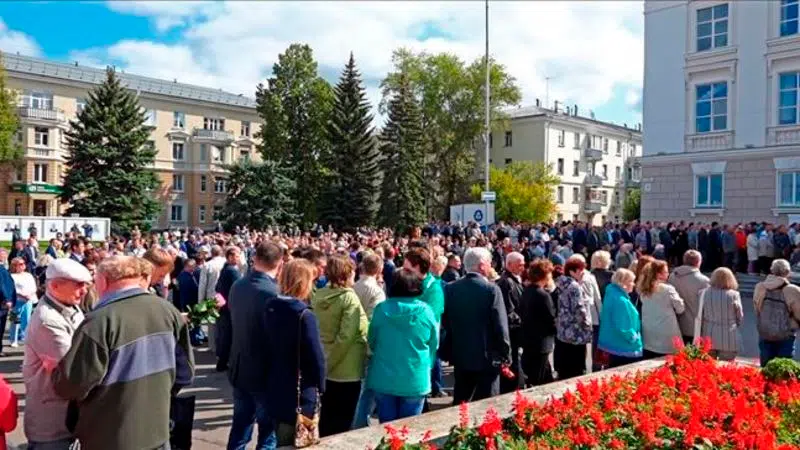
Russian military orders village evacuation, then cancels it
MOSCOW — The Russian military on Tuesday told residents of a village near a navy testing range to evacuate, but cancelled the order hours later, adding to the uncertainty and confusion fueled by a missile explosion last week that led to a brief spike in radiation that frightened residents and raised new questions about the military’s weapons program.
Initially the military told residents of Nyonoksa, a village of about 500, to move out temporarily, citing unspecified activities at the range. But a few hours later, it said the planned activities were cancelled and rescinded the request to leave, said Ksenia Yudina, a spokeswoman for the Severodvinsk regional administration.
Local media in Severodvinsk said Nyonoksa residents regularly receive similar temporary evacuation orders usually timed to tests at the range.
The Defence Ministry initially said Thursday’s explosion of a rocket engine at the navy range killed two people and injured six others, but the state-controlled Rosatom nuclear corporation said two days later that the blast also killed five of its nuclear engineers and injured three others. It’s still not clear what the final toll is.
